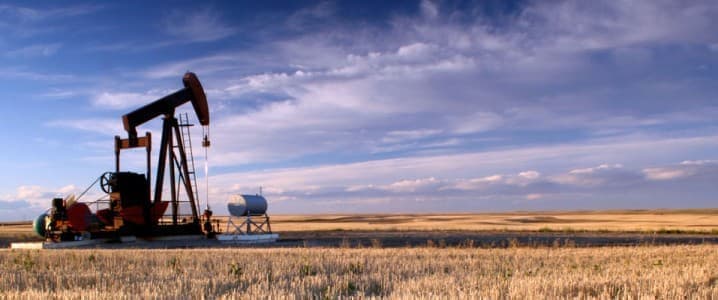Alberta is taking hit after hit following the cancellation of the Keystone pipeline and international pressure to curb oil production in the coming years, as the oil-rich state insists it needs to maintain its thriving oil industry to survive.
First, it was the cancellation of a huge oil infrastructure project, the $8 billion, 1,700-mile Keystone XL pipeline expansion, that was supposed to run from Alberta to Nebraska, carrying an estimated daily average of 800,000 bpd of oil.
The project had gone back and forth, initially being canceled by President Obama but then being re-approved by President Trump. However, when President Biden came into office this year, with climate change at the top of his political agenda, the hopes of a pipeline were once again dashed.
Then, the International Energy Agency (IEA) released their landmark report this May, “Net Zero by 2050: A Roadmap for the Global Energy Sector”, calling for the curbing of oil production, the end to new exploration projects, and the gradual transition to net-zero carbon emissions alongside the greater use of renewable energy alternatives. This point was reiterated this month in the IPCC climate report.
As Alberta’s oil sands industry is extremely carbon-heavy, creating three to five times as many CO2 emissions per barrel of oil equivalent due to the difficult extraction process, western Canada was hit hard by this international encouragement to move away from oil.
Canada’s reputation has been tarnished from repeated calls to cut carbon and the failure of so many of the country’s oil pipeline projects. So much so that the Financial Post labeled the country “a graveyard of mega pipeline projects.”
However, Alberta is home to the world’s third-largest oil deposit, still thought to have around 173 billion barrels of economically recoverable oil, which has led Alberta Premier Jason Kenney to say that giving up oil would be impossible for the oil-rich state.
In response to international pressure for Canada to rein in its oil production over the coming years, Kenney stated, “It is a utopian notion that we can suddenly end the use of hydrocarbon-based energy,”. Rather, “The challenge is to shrink carbon and CO2 output, and Alberta is increasingly a world leader in that respect.”
And Canada is now critiquing President Biden’s decision to cancel the Keystone pipeline in response to his government’s recent calls for the curbing of OPEC+ cuts to stabilize oil prices.
Last week, U.S. National Security Advisor Jake Sullivan issued a statement warning of the impact of ever-increasing gasoline prices, asking OPEC+ to reconsider their current production cuts in order to improve oil prices.
Sonya Savage, Alberta’s energy minister, responded to the U.S. request to OPEC+ by reminding Biden’s government of the damaged relationship and lost potential of the U.S.-Canadian oil industry, “The Biden administration pleading with OPEC to increase oil production to rescue the U.S from high fuel prices months after canceling the Keystone XL pipeline smacks of hypocrisy.”
Related: Wall Street Bullish On Oil Despite Losing Streak
Kenney added, via a tweet, “Why is the US government blocking energy imports from friendly Canada, while pressing for more imports from Opec dictatorships & Putin’s Russian regime?”
Meanwhile, production levels in Alberta somehow seem to keep on increasing despite the multitude of challenges that have been thrown their way this year. Oil production in Alberta has risen beyond that of pre-pandemic 2019 levels, averaging 3.53 million bpd between January and June this year.
Oil sands extraction accounts for around 86 percent of this production figure, as previously underused facilities are now achieving their full potential. Alberta’s oil exports have also been higher in the first half of 2021, up 4 percent in 2020 and 1.7 percent in 2019.
In addition, oil sands could begin exports next month thanks to updated infrastructure. Enbridge Inc.’s Line 3 760,000 bpd oil pipeline connecting Alberta with Wisconsin could commence operations as early as September 15, replacing an older pipeline that delivered just 390,000 bpd.
But Canada is not ignoring calls to act on climate change as it goes ahead with its oil projects. For example, one way in which Alberta might tackle international criticism to win back favor for the oil industry is through heavy investment in carbon capture and storage (CCS) projects. Suncor Energy highlighted the need for more extensive government subsidies to develop CCS technologies such as small modular reactors (SMRs) to reduce carbon emissions without cutting oil production.
Likewise, Cenovus Energy CEO Alex Pourbaix stated “There is not a dial on the wall where we can dial 'low carbon',”, further “To decarbonize significantly takes capital - massive quantities of capital over many years."
If Prime Minister Justin Trudeau hopes to continue developing the country’s oil industry at the same time as cutting carbon, as he has so often signaled, with the aim of reducing CO2 emissions by 40 to 45 percent by 2030 from 2005 levels, his government will have to take these recommendations from oil firms on board.
While Canada’s oil industry received hit after hit, it appears to be resilient enough to withstand the blows. Even so, Trudeau will have to consider greater investment in CCS technologies to support the sector in the face of increasing international criticism, and Biden may have to reconsider his tough stance on Canadian oil to manage the long-term stability of oil prices in a time of turbulence.
By Felicity Bradstock for Oilprice.com
More Top Reads From Oilprice.com:
- The Main Reason Oil Prices Won't Go Above $80 Per Barrel
- What Happens If We Stop Pumping Oil Tomorrow?
- Oil Sinks As Demand Outlook Worsens

















